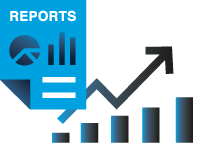This is a two-part article on sustainability.
Click here to read Sustainability begins with this simple word (part 1).
Economic sustainability is sometimes forgotten in the discussion around this buzzword. Perhaps it’s easier to talk the latest methods or innovations than the numbers and the bottom line.
But the bottom line is where it starts. In order to work toward better social and environmental outcomes, an operation has to make sure it’s profitable.
With a farm data management system, you can begin to understand how your decisions affect your bottom line, so you can be sure your farm can go on farming. Just as important, you can also swiftly report on your growing practices to interested parties, something that, long-term, could also determine the sustainability of your operation.

Market and consumer demands
The food industry is becoming more and more consumer-driven. Consumers increasingly want peace of mind around what they feed their families, and growers need to be willing to adapt to these market demands and change their business models accordingly.
Profitability used to be simpler. Now the world is changing, and the sustainability of farming operations will in part be determined by how well they are prepared to meet the demands of the future.

“Sustainability might be defined by who’s buying your crop. The marketplace, and maybe market compliance, can define sustainability, not just the farm’s practices.”
Traceability becomes a non-issue when your information is centralized and organized. As things grow more complicated, growers who have a handle on their data are the ones who will be prepared to respond to what supply chains want. They’ll be confident managers running successful operations, yes, but most importantly, they’ll be profitable—which means they’ll be able to confidently carry on into the future.
"Huge value" for the grower
The amount of ag technology available to farmers is rapidly increasing, and it’s not always clear what will really bring the most value. Modern farmers are long on data and short on time, and changes that feel like more work don’t seem all that realistic when there’s actual work to attend to.
We get it.
Still, analysis of data is vital to an operation’s future success, and a smart farm management system can make analysis surprisingly simple. Christie explained: “As more systems become— call them cloud-based, or readily available, you can start to move data in a trusted way from system to system. The fact that we can take John Deere data and Climate FieldView™ data and turn it into a business result without the farmer having to key anything in is a big value-add for the farmer.”
Stock, the Minnesota farmer from the sustainability discussion, sees it the same way. “I think the simplicity and the ease of transferring the data, and having it in a format where an end user can interpret it—there's huge value in that,” he said.
With Conservis, you’re empowered to make sure your operation can meet the demands of the future.That’s true sustainability on the farm.
Interested in exploring how Conservis can improve your operation’s sustainability?

